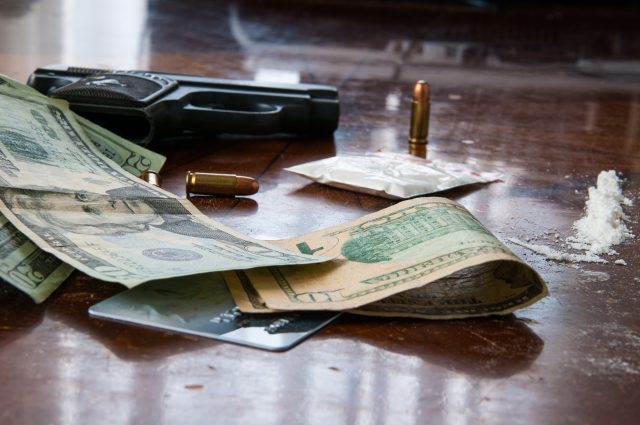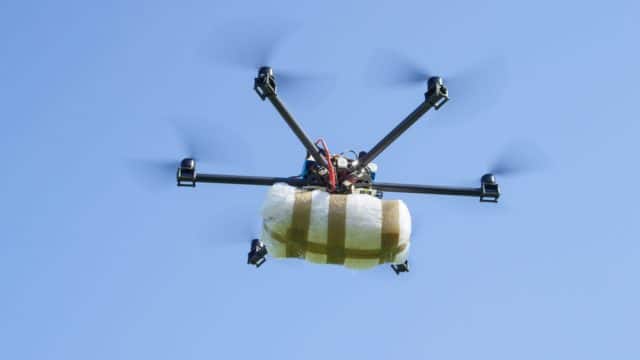
The accelerated spread of the novel coronavirus has brought the global economy to a standstill. Predictions of potential impacts of the pandemic’s shock on the worldwide economy vary considerably. Yet many agree that the economy is facing the most severe challenge of the post-war era due to the sudden halt in economic activity in both developing and advanced countries.
Five months into the pandemic and businesses of all shapes and sizes are either shaping up or shipping out. The lockdown regulations have seen more and more companies change the way they do business. However, there is an industry that’s taking a massive hit with the travel ban and border regulations – illegal drug trade.
The COVID-19 pandemic is dealing heavy blows on the illicit drug trade – or at least for now. The closure of all ports of entry and travel restrictions has made it difficult for drug cartels to ship their products across borders. That’s not the only problem. There’s also a significant disruption in the supply chains. As it turns out, drug traffickers depend on chemicals produced in China to make profitable drugs like fentanyl and methamphetamine. But with everything that’s happening, they have a hard time accessing these drug supplies.
The extensive disruption is causing shortages of illicit drugs in the US and UK, according to a United Nations report released on April 1. For instance, meth supply has decreased in most parts of the US, causing its price to skyrocket. Heroin and cocaine have seen the same uptick in price. These could be attributed to the shift in demand and supply equilibrium. The report further revealed that illicit drug trade is still thriving in other countries including, Australia and parts of Asia amid the pandemic.

When drug shortages occur, price and associated criminal activity tend to increase as well.
As mentioned earlier, most drug traffickers get their synthetic drug supply (like crystal meth) from countries like China. But the air travel restrictions and flight cancellations are disrupting the normal operations.
The opiate seizures in the Indian Ocean show the impact that Coronavirus is having on the heroin business, considering these drugs are often trafficked by land.
Then there’s cocaine, which is mostly trafficked along maritime routes. The drugs have been detected in the European ports in the past few months.
Marijuana seems to be the only drug that hasn’t been widely affected by the virus since it’s grown and produced near places where it’s bought and sold. Still, smugglers aren’t very willing to ship marijuana across borders or regions under lockdown.
The supply and distribution of most illicit drugs (especially those that rely on ingredients sourced from China, Afghanistan, Colombia, etc.) are restricted as countries close their borders to control the deadly Coronavirus. Several reports show a reduction in supplies of synthetic marijuana, cocaine, and heroin.
A post on Forbes speculates that the Covid-19 lockdown is putting darknet drug cartels out of business. It further states that the lockdown is hitting pubs, clubs, bars, and other drug-taking hotspots, but darknet dealers accept bitcoin as payment too. Bitcoin, which allows users to purchase illicit drugs, stolen goods, and even guns, has seen a significant drop in spending since the onset of the virus.
Again, with the transit routes through South America having shut down, drug trafficking cartels are unable to cross the Southwest border. There has also been a dramatic reduction in the foot and car traffic to and from Mexico, a major source of America’s heroin. Not to mention the stay-at-home orders and increased law enforcement (police presence) that discourages both buyers and dealers from meeting in public.
The report from the UNODC highlights the potential effects the pandemic may have on drug production in countries like Afghanistan, which cultivates about 90% of the global illicit opium. With March to June being the critical months for the opium harvest in the country, this year’s yields could go to waste if laborers won’t be willing (or able) to travel to where the poppies are grown.

People aren't just stocking up on toilet paper and hand sanitizer. Many are panic-buying illegal drugs, due to the fear of looming global shortages.
Those who manage to access illicit drugs like cocaine are panic-buying so that they don’t run out of stock should the supply run out. An anonymous drug dealer told The Guardian that they do not expect any more cocaine shipments from abroad for six weeks. He said, “I sell cocaine and cannabis to suppliers in the north of England. I have 20 guys on the street servicing about 200 regular clients. But right now, we have two major concerns: sourcing drugs and making enough cash. With the looming shortage, my customers are buying ridiculous amounts of cannabis.”
Of course, as you would expect, people won’t behave rationally, whether it’s about buying sanitizers or marijuana. What we have seen happen with essential goods is a depiction of what’s happening in the drug world. Whenever possible, some users stock up on their drug of choice, leading to supply issues. Stockpiling might cause users to consume more drugs than usual. And when they exhaust their stock, and cannot get more, they could end up with withdrawal syndrome.
Inevitably, they’ll try alternative drug which exposes them to harm because they may not be used to the drug or know the safe doses. The same applies to the group that cannot stock up because of different reasons – like lack of money. They also will turn to substitutes, like diazepam, fentanyl, benzodiazepines, and so on. This shortage is increasing the number of IV (injection) users who are sharing needles to share what’s available. This exposes them to the risk of contracting hepatitis, HIV/AIDS, and Coronavirus itself.

When the government fights the illegal drug trade, organized crime and the drug cartels fight back harder.
The UN warns that the Covid-19 pandemic may present new opportunities to some cartels. Indications reveal that drug smugglers are adapting their strategies, with some having started to take advantage of the situation to boost their image among the population by offering solutions to the vulnerable. This prompted the Trump administration to launch a war on drugs to combat drug trafficking amid Coronavirus pandemic. In the briefing, the president said the country must not let the drug kingpins and smugglers exploit the Corona outbreak to threaten American lives. He added that the US Southern Command would increase surveillance and seizures and disruption of the drug shipment.